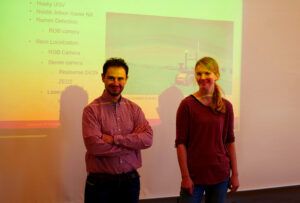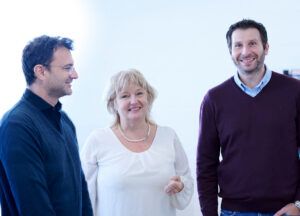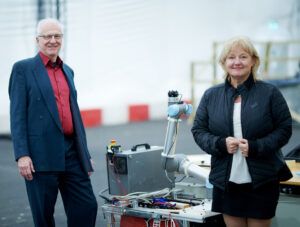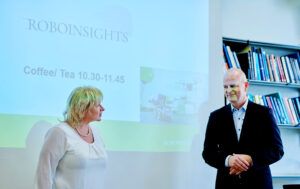
- This event has passed.
Robotics and AI. From Research to Society – 2018
4. November 2020 - 9:00 - 17:00
Free – DKK350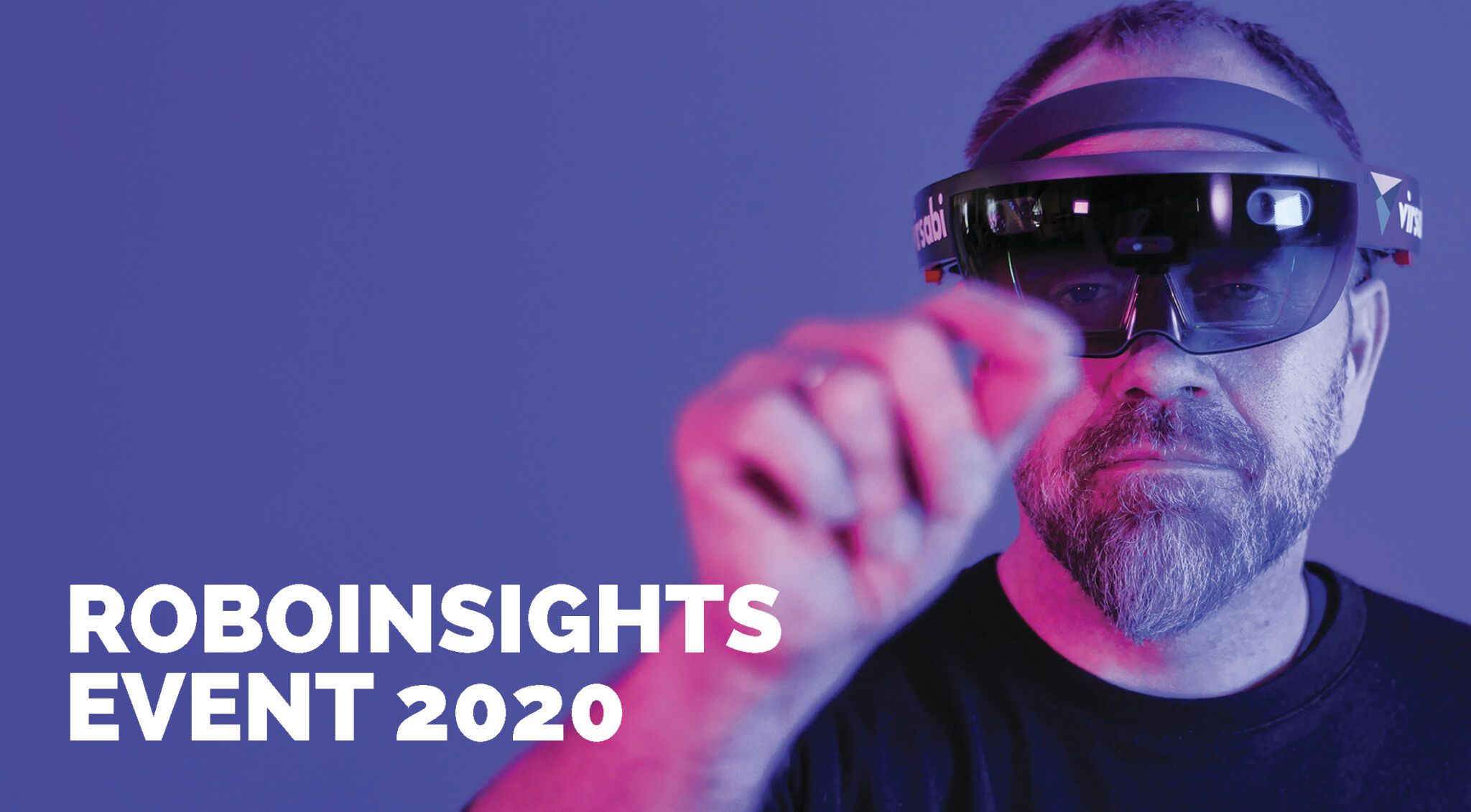
Robotics and AI. From Research to Society
Program for September 2018
First RoboInsights taking place in Elsinore
September 2018 - Robotics and AI. From Research to Society
9.00 - 9.10
Welcome. Marianne Andersen & lars romann
9.10 - 9.50
Solutions for pre school children. Primary school. Bjarke Falk Nielsen. Nordics
FIRST Scandinavia´s purpose is to give young people good training and empowering experiences with technical and natural science, and thereby contribute to more pupils choosing scientific education. We do that through our 2 concepts, FIRST LEGO League and Newton Rooms.
In this talk, country manager Bjarke Falk Nielsen will shortly outline the 2 concepts, but also explain why this is important for the new generation of kids.
9.50 - 10.10
Fun and easy to teach 21stcentury skills and STEM. David Christensen. DK
David Christensen from Shape Robotic will share the experience the company has had using the Fable robot in primary schools, secondary and higher education. Fable is a modular construction set that students can use to create a robot in few minutes. Students can click the different modules together in different ways to build their robot’s body, and give it senses and movement.
Depending on experience level, the students can program the robot with visual blocks (Blockly) or a text language (Python). Within just one lesson, the students can work with innovation to solve real-world problems.
10.10 - 10.30
Children with SPECIAL NEEDS. MORTEN JACOBSEN. SKOLEN VED NORDENS PLADS. TELEPRESENCE ROBOTS - GAME CHANGER IF A CHILD CANNOT GO TO SCHOOL.
Find out how telepresence robots can improve quality of life for students that can’t attend school due to physical or mental illness. See for yourself how the technology enables the ability to be a part of class even though the student is at home. You’ll be given examples of how to customize the technology, so it makes sense in an educational context, and you’ll see how the robot works. This presentation will be based on a case study of a 12-year-old Danish boy who hasn’t been to school for more than two years but has been beamed in on the robot everyday instead. It’s all about looking beyond the wow factor and instead focusing on the possibilities of this disruptive technology.
Robotics-craftsman & Technology Scout, Skolen ved Nordens Plads (K12 school for children with special needs). Morten Jacobsen is an award-winning robotics-craftsman and technology scout at Skolen ved Nordens Plads, which is a K-12 school for children with special needs in Copenhagen, Denmark. Morten is a trained teacher but for the last 10 years, he has specialized in finding and implementing technology in the educational sector. Morten’s main focus is on the possibilities that new technology creates for students and in 2017 he won the prestigious “Teacher of the Year” award and the Frederiksberg Municipality “Innovation Award”. Furthermore, he’s a sought-after speaker, who among other appearances has spoken at the SingularityU Denmark summit in 2017 and The BETT show in London.
10.30 - 10.45
Coffee/ tea
10.45 - 11.15
Universities and life long learning. Helle rootzen. DTU. Dk
Learning in the future will be more efficient, more deep and more fun
learnT – Center for Digital Learning Technology – is a research and innovation center at DTU ( Danish Technical University) Compute working with learning analytics, educational data mining, learning design, learning theories, playful learning and ethics, as these areas are highly relevant to understand learning and develop effective, motivational and fun learning technology. In the future, we will need to learn continuously – a focus on ‘lifelong learning’ is thus important. Accordingly, learnT researches at all levels, from primary and lower secondary education to youth education, university education and continued education.
11.15 - 11.45
Neuro-robotics with focus on education. Silvia Tolu. Italy
Understanding the brain is a challenge that more than 100 research institutions in Europe are trying to achieve in the framework of one of the two largest scientific projects ever funded by the European union, the 10-years project called: The Human Brain. This project aims to map the human brain and create an ICT-based research infrastructure to help advance neuroscience, medicine and computing. Among 13 sub-projects, the tenth is dedicated to Neuro-robotics in which researchers have created a platform for linking virtual brain models and simulated robot bodies. The main goal of the team at the Technical University of Denmark (DTU) is to get new insights into the brain’s connections ant its interactions with the body and surroundings, so that the brain is not only understood as a closed, abstract entity. We will discuss the brain and body relationship, and its importance on AI and robotics. Our approach is exemplified by bio-mimetic modular control architectures based on cerebellar internal models concept and machine learning optimisation that lead to a real-time control system. The system has been tested on different robotic platforms under both manipulation, visual, and locomotion tasks. This will be the state-of-the-art for more complex bio-inspired control architectures for neuro-robotics towards emulating the central nervous system functioning in motor control and learning.
11.45 - 12.45
Lunch
12.45 - 13.05
External development department. Peter stany. robotdalen. sweden
Robotdalen is a catalyst for the development and implementation of new ideas and solutions in robotics. Peter Stany will talk about how Robotdalen focus on new innovations for industry, service ad health care. He will also share some cases showing the challenges they have helped industry to solve.
13.05 - 13.25
Maja Hadziselimovic- . Robots in corona times
Robots are around us since the 1960s to support in production, education, medicine etc. Which robots have helped us fight Covid-19, and how did they do it? Did we, humans, collaborate with them or not? How can technology help us in situations like these?
13.25 - 13.45
Anna Krzyzanowska. Nanotechnology. Printed electronics
What is the future of electronics? Can you imagine flexible electronics? How to make electronics more environmentally friendly? Printed electronics is the answer. Low weight, no need for cables and highly automated manufacturing of fully customized components. Printed electronics offers many advantages for many industries. In recent years, there has been significant interest in the applications of printed electronics in the realization of a range of electronic systems such as flexible displays, low-cost sensors, and even in novel semiconductor packaging flows. In this event we will review our progress in advancing the state of the art in printed electronics. From e-textiles to AI: Printed Electronics a Key Technology.
13.45 - 14.15
Asbjørn Søndergaard. CTO odicO
Odico`s technology will revolutionize the way in which you can produce geometrically challenging moulds within a reasonable financial frame.
14.15 - 14.30
Coffee/ tea
14.30 - 14.40
high-tech start-ups - how to work with industry insiders and business angels at the universities. Jes broeng. DK
One of the challenges in society today is: How do we make sure society benefit from research i.e. how do we assure Technology and research are transferred to industry and thereby to society – and how do spinouts arising from universities get money to grow?
Prof. Jes Broeng has been a guest researcher at UC Berkeley from where he has got experience that can be used in for instance Denmark. One of the reasons why Silicon Valley is more successful than most entrepreneurial environments is that they use external entrepreneurs who have commercial experience from running a company or working with business outside the university environment.
The experience from UC Berkeley is used in the initiative Open Entrepreneurship that is an initiative including 4 universities: Danish Technical University, IT University Copenhagen, Aalborg University and Aarhus University. This initiative will tackle the challenge of bringing knowledge, patents and new inventions from the university to the industry. The purpose of creating a closer collaboration between the academic world and the industry would mean that more ground breaking products will benefit society.
14.40 - 15.05
Anders Thomsen. Dansk erhverv
How far are we in Denmark and EU regarding implementation of advanced technology (robots: physical and software, AI etc).). Sharing of challenges and experience from selected business areas including a case or two.
15.05 - 15.30
Cathrine Lippert. Danish Technological Institute
New Business Models. Cathrine will share insights on how to approach digital transformation from a 360-degrees perspective without getting lost or stuck.
It is no longer enough to just 'make it digital' - that is, to digitise what already exists. Digital transformation is about rethinking and redesigning products, services, processes, value chains, business models and the organisation itself - to be based on a new digital logic. Cathrine will share insights on how to approach digital transformation from a 360-degrees perspective without getting lost or stuck.
15.30 - 16.30
Entrepreneurship. How to create successful startups. Professor Jes Broeng DTU
How to create the business case that investors find interesting. How to create the optimal team. What is important to include in the pitch. How do you get experience and learn from others that have made mistakes and created successes? What is important to know before you start in or create a startup.
Entrepreneurship is a hot subject today. 30 years ago all boys wanted to be a policeman or to work for the fire brigade and all girls wanted to be a nurse. Today everybody want to be an entrepreneur. Jes Broeng is a serial hightech entrepreneur himself and has used his own experience to help other entrepreneurs grow:
How to create the business case that investors find interesting
How to create the optimal team
What is important to include in the pitch
How do you get experience and learn from others that have made mistakes and created successes? What is important to know before you start in or create a startup.
Come and hear Prof Jes Broeng share his experience. Jes has tried it himself and been successful. He has insights from both the technical and the commercial side – which is rare in the scientific community and a great benefit when working with hightech startups.
16.30
End of the day
Kulturværftet Store Scene
Kulturværftet Store Scene
How do we want to live with robots. This and many more questions will be tried answered at RoboInsights 4th September 2018
Program subject to change
Are you interested in speaking?
If you are interested in speaking, please contact Marianne Andersen ma@roboinsights.com – we are especially interested in cases: where is the technology being used and what are the good/ challenging stories to tell.
Details
- Date:
- 4. November 2020
- Time:
-
9:00 - 17:00
- Cost:
- Free – DKK350
- Event Category:
- Events
Venue
- DTU
- Oticon salen, DTU, Kongens Lyngby Denmark
Organizer
- Roboinsights
- Website:
- roboinsights.com
